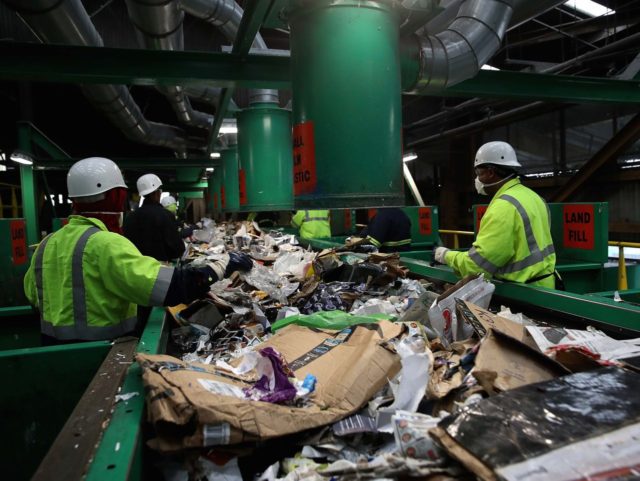Recycling is a waste of time and money which probably does more harm to the environment than good.
This is the message of a damning report produced for the UK government by the National Audit Office.
It confirms what many have long suspected: recycling is an empty ritual, devised by green zealots, enforced by bureaucrats, but with no practical benefits whatsoever.
Obviously, being an official report, it doesn’t state the truth quite so bluntly. But it leaves the reader in no doubt that Britain’s recycling targets are just an empty, EU-driven exercise in green virtue-signalling and that the whole process positively invites fraud and corruption.
The report focuses on packaging recycling. Under a scheme introduced by the Blair Government in 1997 to comply with EU recycling directives, companies are obliged to take a certain percentage of their packaging from recycled material – or at least to do so symbolically by purchasing “recovery evidence notes” from specialist recycling companies. These are a bit like carbon credits or renewable obligation certificates: a way of maintaining the illusion that there is a free market, while simultaneously forcing companies to underwrite green tariffs imposed on them by the state.
It concludes:
The system appears to have evolved into a comfortable way for government to meet targets without facing up to the underlying recycling issues. The government has no evidence that the system has encouraged companies to minimise packaging or make it easy to recycle. And it relies on exporting materials to other parts of the world without adequate checks to ensure this material is actually recycled, and without consideration of whether other countries will continue to accept it in the long-term. Despite it now being 20 years since the system was established, the Department does not know what value the system has added nor whether the Agency’s approach to tackling the risks of fraud and error is proportionate. Our overall sense is that over a long period government has allowed the obligations to keep rolling forward without asking the important questions.
What it means is that the system is broken and probably never worked in the first place.
In order to meet its EU-driven recycling targets, Britain – like many advanced economies – has simply exported the problem overseas to countries where standards are much laxer and where people have fewer qualms about either dumping or burning trash that was supposed to have been recycled.
Until January this year, China was the main destination for this exported trash. But now it refuses to take it – which has led to havoc in the fake-recycling market.
Some of the worst fraud is now committed in Poland, which receives 12,000 tonnes of plastic from the UK a year. It is supposed to be recycled but a lot of it isn’t.
As we have argued before at Breitbart News, recycling is nothing but a form of state-enforced green religious observance.
It’s needlessly costly and time-consuming but what really drags it to the level of criminal lunacy is that it fails to achieve the one thing it’s designed for: improving the health of the planet.
On the contrary, recycling leads to more not less pollution. This was confirmed in a recent report for the Global Warming Policy Foundation, which found that a significant proportion of the plastic waste now choking the oceans emanates from fake recycling operations in the developing world.
The economics are obvious: if you make the disposal of waste unnecessarily complicated and expensive, then you incentivise criminals to come in and fill the gap.
Unfortunately, greens don’t do real economics – only the pretend economics of “sustainability” – so this global problem is unlikely to go away any time soon.

COMMENTS
Please let us know if you're having issues with commenting.